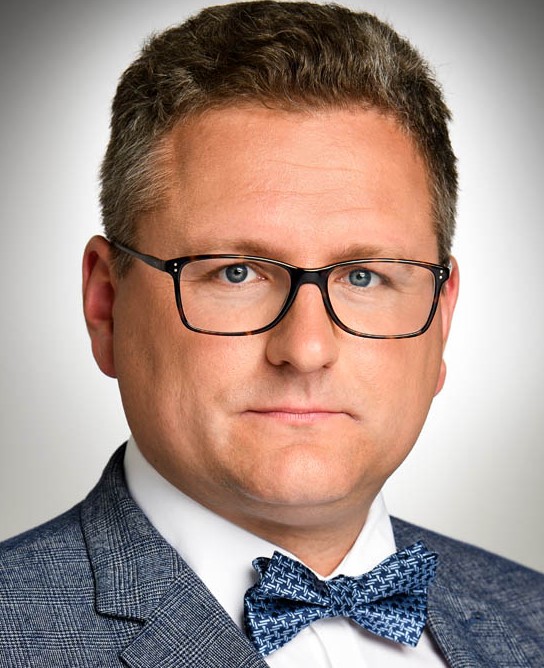Invited Speaker

Dr. Jakub Dalibor Rybka
Associate professorAdam Mickiewicz University in Poznań, Poland
Speech Title: Novel Approach to Meniscus Regeneration
Abstract: The knee meniscus plays an indispensable role in articular surface protection, shock absorption, and stress transmission. Meniscus injuries are extremely prevalent, with an annual incidence of 66 to 70 per 100,000 people. Due to limited vascularization, the regenerative capacity of the meniscus is relatively low and restricted to the most vascularized outer regions. The most commonly performed treatment involves suturing or removal by partial or total meniscectomy. However, meniscectomy significantly increases the incidence of osteoarthritis (OA) later in life by elevating the contact pressure on the tibial plateau. Approximately 50% of patients with meniscal injuries develop OA between 10 and 20 years after the injury. Therefore, optimal treatment options
should preserve or mimic the mechanical properties of the meniscus. 3D bioprinting belongs to the family of additive manufacturing (AM) processes that utilize computer-aided design (CAD) for the generation of 3D models through layer-by-layer deposition. The constructs are printed with bioink comprised of viable cells, biomaterials, and additional biological substances. These artificial, cell-laden scaffolds promote and support new tissue formation by providing a suitable environment for cell migration, proliferation, differentiation, and ensure a proper extracellular matrix (ECM) secretion [6,7]. During the presentation a novel approach (based on 3D bioprinting) of regenerative medicine towards the meniscus will be shown.
Keywords: Applied Biotechnology; Bionanotechnology; 3D Bioprinting; Tissue Engineering
Acknowledgements: This work was supported by the National Centre for Research and
Development TECHMATSTRATEG-III/0027/2019-00 grant.
Biography: Jakub Dalibor Rybka, associate professor at the Adam Mickiewicz University in Poznań (www.amu.edu.pl), ViceDirector of the Wielkopolska Center for Advanced Technology (www.wcat.pl) and the Head of Laboratory of Applied Biotechnology (www.lab.amu.edu.pl). He graduated at Universitat fur Bodenkultur Wien in Austria (www.boku.ac.at). After several years of work for AMU, the habilitation (Thesis title “The use of nanomaterials (superparamagnetic iron oxide nanoparticles and carbon nanotubes) in biotechnology”) procedure was completed at the Faculty of Biology of AMU. Current scientific work is focused on tissue engineering, 3D bioprinting, bionanotechnology, and recently, immudiagnostics of COVID-19.
